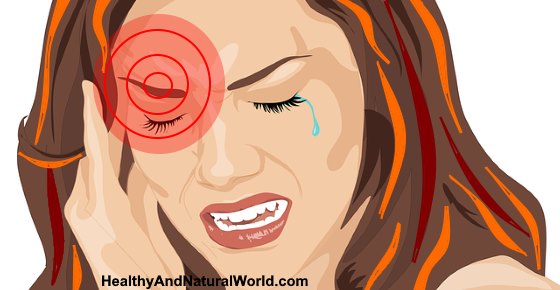


These bacteria are active at night, causing dry eye-related symptoms of redness and irritation upon waking. BlepharitisĪs discussed previously, blepharitis is an inflammatory condition of the eyes caused by bacterial-overgrowth. Aging conditions such as tear gland damage, diabetes, thyroid disease, and autoimmune conditions can further exacerbate this issue.
:max_bytes(150000):strip_icc()/pain-behind-the-eye-3422050-5c773a09c9e77c00011c82f3.png)
Additionally, your body’s metabolic function slows down when you sleep, slowing tear production. Change in Bodily FunctionĪlthough your lids are supposed to work as a seal when you sleep, lack of blinking leads to decreased tear production. In-office diagnostic testing can determine if you are suffering from nocturnal lagophthalmos. Systemic conditions including Bell’s Palsy, tumors, paralysis, thyroid disease, and Grave’s disease can contribute to this issue. Because the eyes are not completely closed for several hours, the tears and corneal surface dry out, leading to symptoms of pain, scratchiness, mucous discharge, and/or foreign body sensation upon waking. I bet you didn’t know many people sleep with their eyes partially open. ( hint: read on to find out!) Nocturnal Lagophthalmos You’d think it’d be the opposite, but there are actually a few reasons why this is so. If you suffer from dry eye, you may have noticed that your eyes feel worse in the morning, despite a good night’s rest. ‹ back to previous page Do Your Eyes Feel Worse In The Morning?


 0 kommentar(er)
0 kommentar(er)
